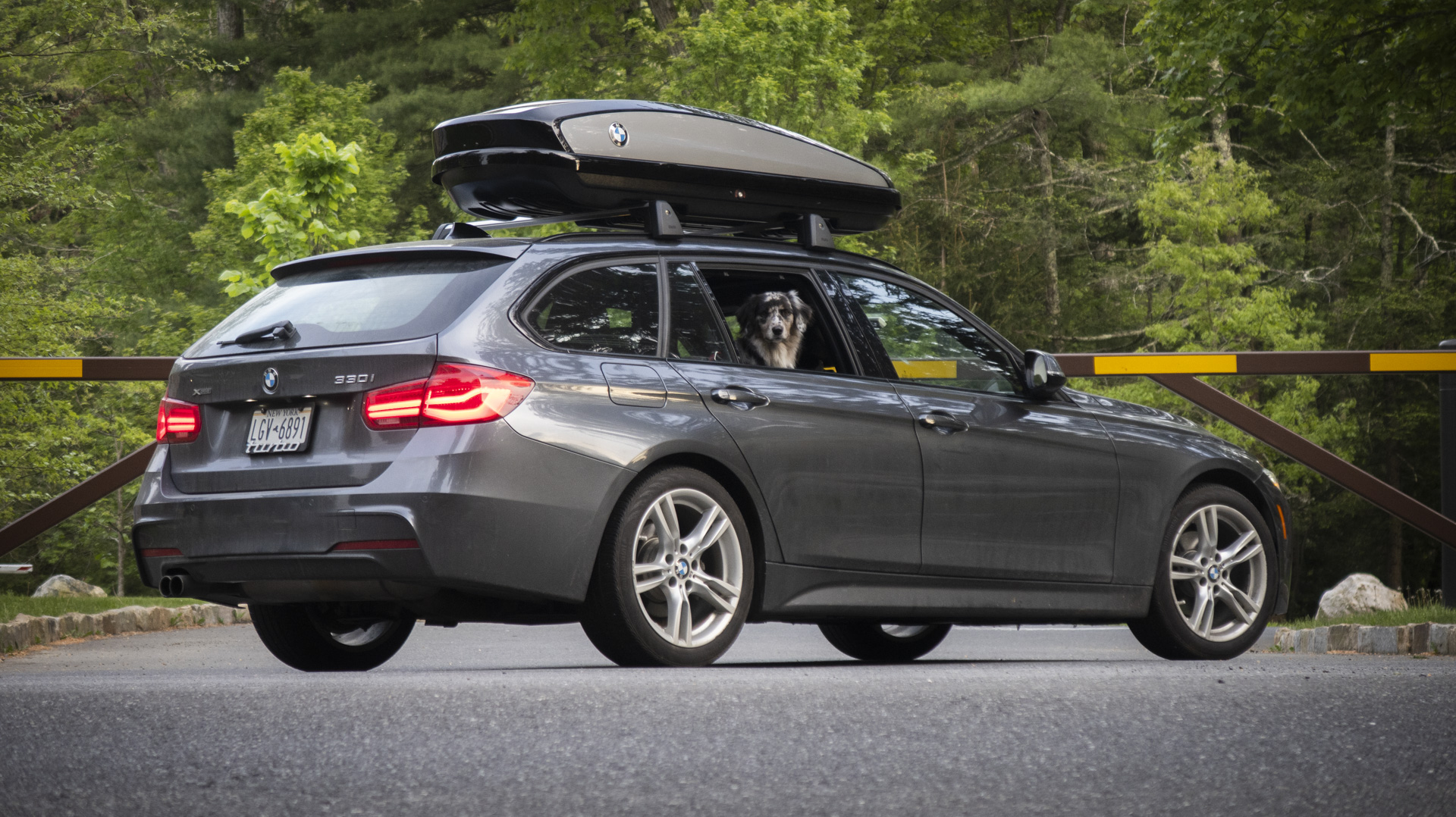

I refuse to be one of those guys who drives around with car accessories simply because they look cool—but I’m suddenly in danger of becoming one. I test-fitted this gorgeous BMW cargo box on my wife’s F31 3 Series wagon, accidentally did a photo shoot with it, and have “not had time” to remove it since. Shoot.
Nah, don’t worry, I’ll pull it tonight—so I can bring it into my office and admire it all day! (I won’t do that either.) But I mean, come on, how sweet is this thing?

So what makes BMW roof boxes so special, when just about every automaker and plenty of aftermarket companies offer something similar? Three reasons: First, the box shape pulls design elements directly from BMWs, completing the vehicle’s design exceptionally well. Look at the Hofmeister kink at the back—it’s very similar to the design element BMW likes to use at the back of its rear windows. The whole box’s swept-back shape and the crease in its side match the wagon’s lines perfectly.
Secondly, the colored section on the sides adds unique depth and fanciness. You can paint or wrap a roof box any color you want, but the default two-tone of these factory boxes is unique. Our dog wagon’s a slightly darker grey than the insert here, but I still think they look good and proper together. The insert’s close to the silver of the wheels, at least.
And finally, the roundel emblem (it’s a real domed emblem, not just a sticker) adds a splash of frivolous fanciness that shmucks like me who drive these cars cannot resist.

Speaking of pompousness, the BMW-branded roof box certainly looks more elitist than the decades-old, sticker-covered Yakima I previously owned. But believe it or not, BMW OEM cargo boxes are priced consistently with aftermarket options from good brands.
There are three sizes, a 320-liter that lists for about $700, a 420-liter one at about $1,000, and a 520-liter monster that’s just over $1,200. Yeah, they’re not cheap accessories, but if you check out new options from Thule or Yakima you’ll find ones that cost even more.



If you’re in the market, I strongly recommend buying used. A neighbor of mine sold me an old Yakima box for about $100 last summer, and I was even able to get a key for it at Rack Attack in Denver. That box worked pretty well for ski transport despite having a busted hinge, but when I found this 320-liter BMW OEM unit on Facebook marketplace for about half off MSRP, I pounced on it.
Of course, I’m crazy about the look, but functionally is solid too. It locks into the OEM roof rack with a unique rail system that gives it a nice low profile and minimizes wind resistance while still being high enough to let the sunroof open. I haven’t measured the fuel economy penalty of the box yet, but the wind noise at highway speed is considerably less than it was with my last roof box. I’m stoked with this thing.



As I cruise into my late 30s, I have to laugh at how much I’ve unintentionally imitated my dad. When I was in high school, he drove a grey German wagon with a roof rack. Now I’ve got—a German wagon, grey—with a roof rack.
I had plans to get an ECU tune and potentially some more aggressive suspension on this BMW wagon when we got it, but the more miles I put on it the less interested I am in messing with its factory configuration. It’s just a super-comfortable land missile with a good balance of fuel economy and personality as-is, and I’m not really in a rush to unbalance it. My Civic can take the torture of my modding experiments, I think this sport wagon will get to stay stock.
The F31 might not be one of BMW’s most memorable driver’s cars, but it’s one of the prettiest late models as far as I’m concerned. And this roof box only makes it look cooler.
Got a tip? Email us at tips@thedrive.com